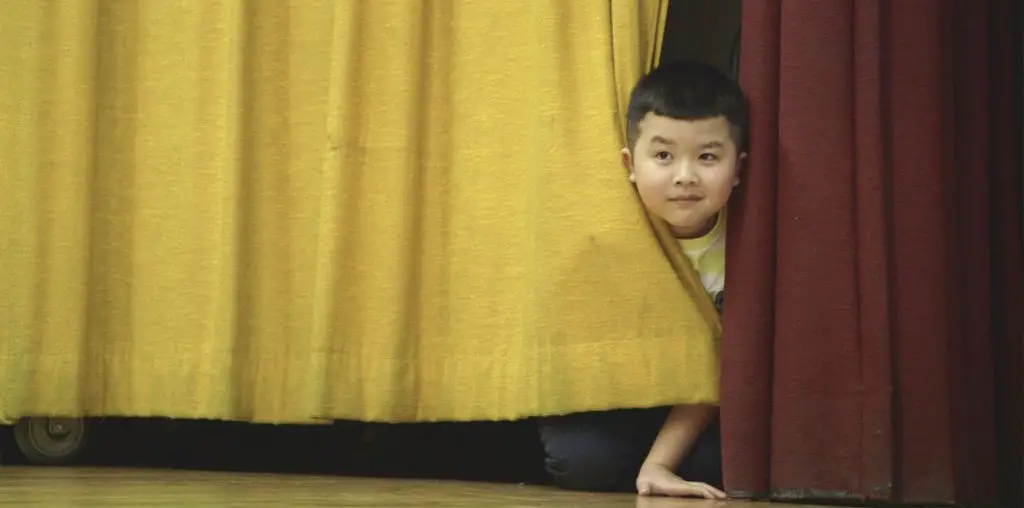
To say that I was fascinated by this film is an understatement. A documentary-narrative hybrid, Iain Forsyth and Jane Pollard’s 20,000 Days on Earth follows musician Nick Cave on what is supposedly that 20,000th day alive. As Cave goes about his day, we are treated to aspects of his personality, history and talents as he interacts with an ever-shifting array of people and environments. His day is a packed one, covering vast distances, though it is presented as if he’s forever within short driving distance of home.
The film is a documentary, in the sense that Nick Cave is the subject, and aspects of the film appear to be honest answers to honest questions or interviews, and we see interactions between Cave and those in his life. To the extent that these interactions are staged, however, is where the debate comes in, and the often fantastical nature of the editing, cinematography and the conversations lends itself to a more fictionalized accounting. If there are truths about Nick Cave to be found in this film, I don’t know that they will reveal anything he doesn’t want revealed. Then again, if you set aside the idea that you’re watching a definitive biography about Nick Cave and instead accept that it is something else (something arguably more interesting, no offense meant to Nick Cave), then the film reveals its brilliance.
The two consistent themes that come up throughout the piece are the fragility and instability of memory and the idea of personal transformation. The former lends itself to the more dream-like aspects of the hybrid documentary-narrative; we’re accepting the stories we’re hearing because they’re being told to us, but their actual truths may never be known. This of course makes Nick Cave our unreliable narrator. On the same wavelength, this makes each of us our own unreliable narrator. As a memory is recreated every time it is remembered (we don’t rediscover memories, we actively rewrite them each time we revisit them), who is to say what the truth really is? Does this film contain something concrete that we can say is true, or does what it explore reveal enough at the core for us to accept it for what it is? And what is that, exactly?
Regarding personal transformation, the film does a wonderful job of exploring Cave’s fascination with the idea while simultaneously giving us examples of said transformation at work. As he plays the different roles of his life (husband, father, musician, celebrity), he may not necessarily change in huge, obvious ways, but you can’t help but see him differently. The best example of this comes from watching Cave and the Bad Seeds work through new songs at rehearsals and recording; there’s a vulnerability there as the lyrics pour out, and the band works together. By the time we see a concert performance of said music near the end of the film, it’s like an entirely new beast has presented itself. Confident, overpowering, commanding respect. Only it was there all along, and we watched it transform, whether we made note of it at the time or not. We’d been set up.
So there are universal aspects of this piece to which I think anyone can relate, but the film can be a challenge for those who might be casual Cave fans, or non-fans. The film doesn’t hold your hand, and while Cave may drop a first name here or there, or make mention of a band or hit single, there’s nothing on screen spelling out for you a traditional Behind the Music-friendly history of Nick Cave. If you don’t know who Warren Ellis, Kylie Minogue or Ray Winstone is, for example, or how they might relate to Nick Cave, then you’re not going to get certain aspects of the film. At the same time, if you do have a bit more knowledge of Nick Cave’s life and career, then you’ll appreciate the lack of a refresher course, and enjoy the art for what it is.
And, again… what is it? It’s everything it says it is, and yet not at all. It is Nick Cave’s 20,000th day on Earth, but maybe it’s not exactly how that day went. It is a day in his life anyway, though not exactly. It’s time spent inside his head, but on the outside wishing for a better view. It’s what he wants you to see, what he wants you to think. It’s a documentary, transformed into something greater. A memory, rewritten for us to explore.

This looks like an interesting film. Great twist on a documentary. Will it be available on Vimeo or some other form of online distribution network?